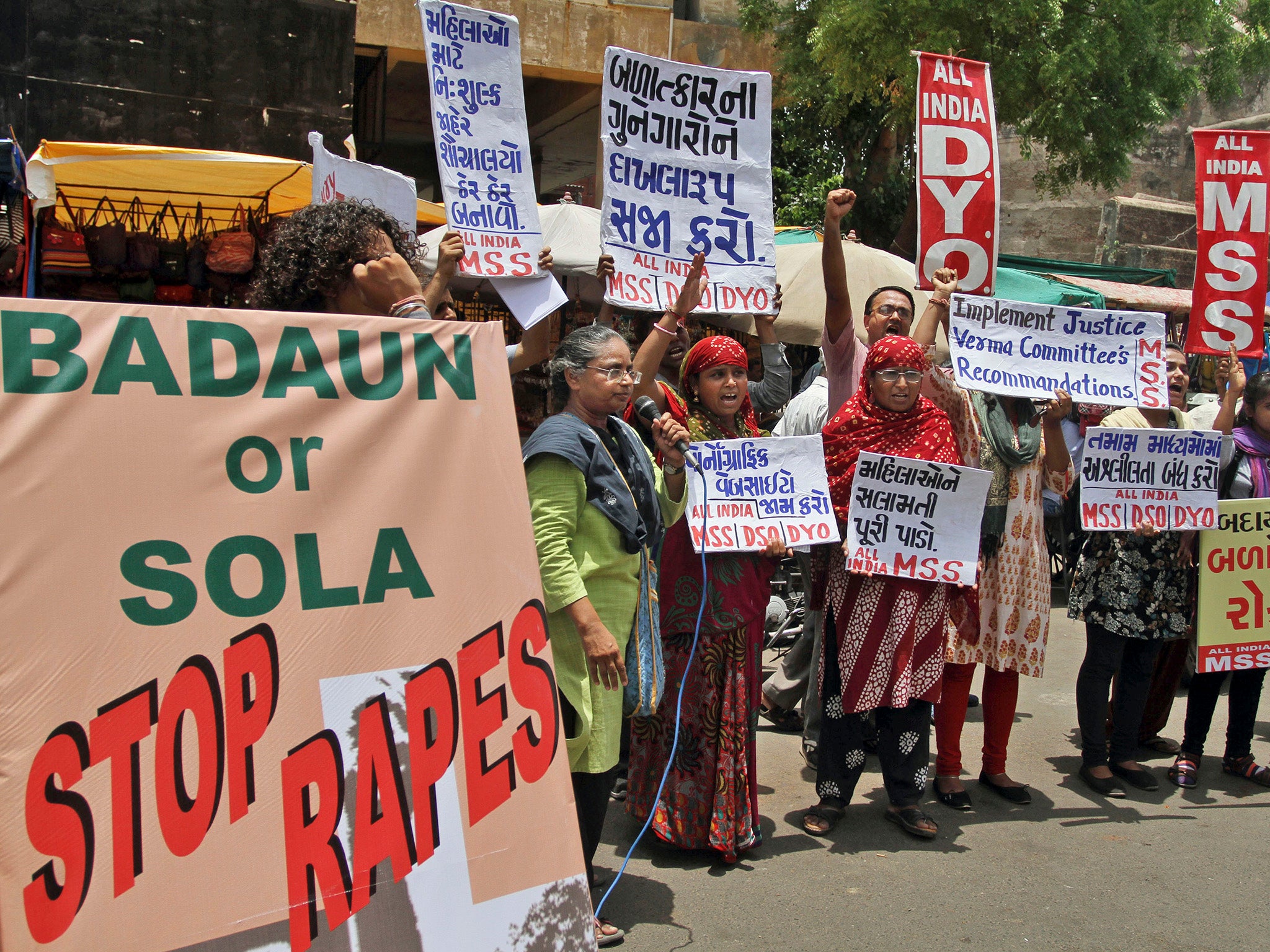India is ready for the truth about its shocking state of gender equality — but its politicians aren’t
The Government ban on India's Daughter has exposed just how flawed their priorities are

Your support helps us to tell the story
From reproductive rights to climate change to Big Tech, The Independent is on the ground when the story is developing. Whether it's investigating the financials of Elon Musk's pro-Trump PAC or producing our latest documentary, 'The A Word', which shines a light on the American women fighting for reproductive rights, we know how important it is to parse out the facts from the messaging.
At such a critical moment in US history, we need reporters on the ground. Your donation allows us to keep sending journalists to speak to both sides of the story.
The Independent is trusted by Americans across the entire political spectrum. And unlike many other quality news outlets, we choose not to lock Americans out of our reporting and analysis with paywalls. We believe quality journalism should be available to everyone, paid for by those who can afford it.
Your support makes all the difference.“You can’t clap with one hand. It takes two hands to clap…A girl is far more responsible for rape than a boy.” These are the words that introduce us to Mukesh Singh, 28, sentenced to death for the rape and murder of 23-year-old Jyoti Singh in Delhi.
Nearly 300,000 people in the UK tuned in to watch the BBC’s India’s Daughter on Wednesday night, just hours after the Indian government banned the domestic broadcast of the film.
India’s Parliamentary Affairs Minister M Venkaiah Naidu claimed it was an "international conspiracy to defame India". Many across the country agreed, arguing that a convicted rapist should not be given such a platform. Though on the basis of that argument, his defence lawyers should be barred from ever stepping into a courtroom.
There are many vehemently opposed to the ban. The film is more than just a horrifyingly candid interview; it is also shocking insight into the state of gender inequality in India. Perhaps the government’s knee-jerk reaction is due to the documentary’s unabashed exploration of some ugly truths.
Sexual violence towards women in India predates the Delhi gang rape in 2012. That said, there was something different about this case, not just because of its brutality, but because it was so close to home. Indians across the social spectrum were united after her death, and thousands took to the streets across the country demanding change and justice.
The numbers surrounding gender inequality in India are grim. Numerous studies suggest half a million girls are aborted annually in India, more than the number of girls born in the UK every year. Meanwhile, according to the National Crime Record Bureau of India, 93 women are raped everyday, and a total of 70,739 women were raped in 2013.
These numbers are increasing but not necessarily because sexual crime is on the rise. The rape and death of Jyoti has seen a gradual diminishment of the stigma in reporting these crimes. There is no shame and these are issues that cannot be ignored any longer.
The social implications of violence towards women are obvious. India is one of the world’s fastest growing economies. But what happens when 615m out of your 1.2bn strong population are marginalised?
In 2013, the Associated Chambers of Commerce and Industry in India found that the productivity of female employees dropped more than 40 per cent in the weeks following the 2012 rape. Around 82 per cent of the women surveyed also said they began leaving work early to avoid using public transport after dark.
This is a huge problem. Yet Indian authorities were so quick to ban India’s Daughter, and even quicker to attempt to block it on social media, that it would seem that their priorities are completely out of order.
Change will not come overnight but films like this and the debates they spark are a step in the right direction. So it’s a real shame that India’s politicians aren’t keen to progress alongside their countrymen, and more importantly, women.
Join our commenting forum
Join thought-provoking conversations, follow other Independent readers and see their replies
Comments